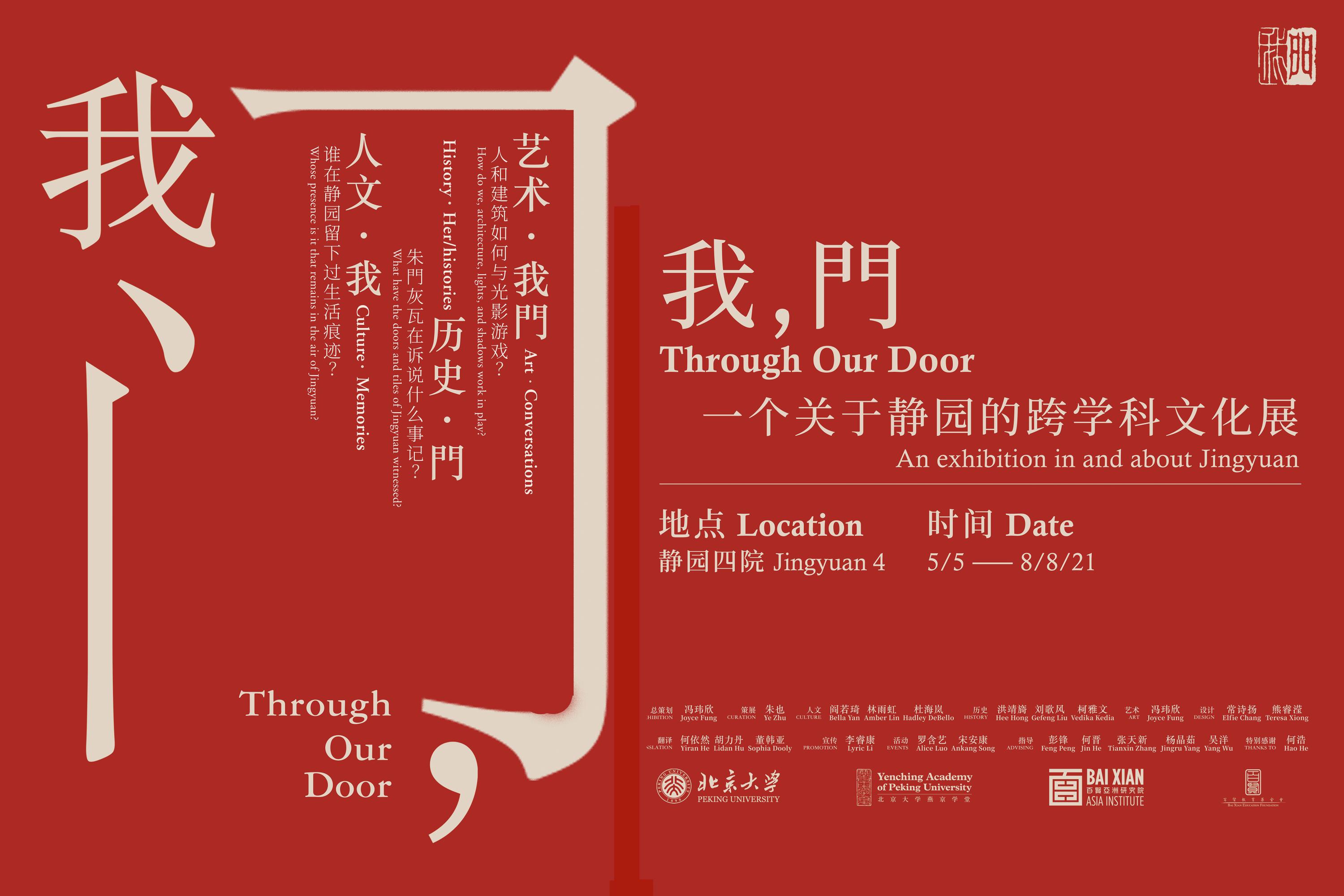From Professor Changwei Chen’s point of view, Jingyuan is more than just a quiet and elegant place, and April in Jingyuan is not just about wisteria. Compared with other modern teaching buildings, Jingyuan is a microcosm of Peking University’s history: The well-planned courtyards and lawn have an air of indelible quaint elegance; at dusk, the magnificent peonies, pines and cypresses on the north side in April form a painting-like scene; the sound of skylarks makes Jingyuan especially tranquil during the pandemic. People have different perceptions. As the saying goes, there are a thousand Hamlets in a thousand people's eyes. Professor Chen’s sharing allows us to understand the unknown side of the development of Jingyuan and other teaching buildings in different eras.

Q: When was your first visit to Jingyuan?
A: I am not sure, but it should be when I went to a class in the History Department. I felt that the lawn in front of Jingyuan was unique, since public lawns were very rare in densely populated cities like Beijing. In Peking University, only Jingyuan’s lawn is spacious enough to attract people. In comparison, the lawn on the west side of the Office of International Relations is not as good.
Q: Which three words would you choose to describe your first impression of Jingyuan?
A: Quiet, classical, and neat (with six courtyards surrounding a square lawn).
Q: What do you feel about Jingyuan after you switched your role from a student to a teacher? Are there any new and unforgettable stories?
A: Jingyuan is still the same, but after becoming a teacher, I have spent less time there. Being increasingly busy makes me overlook many things that I should have noticed in life. The Peking University campus is full of beauty, but it requires time and mood for you to discover. Some teachers rush through these beautiful moments, while others have more time and interest to record them. Some of my colleagues, for instance, are quite interested, always capturing the unique beauty at Peking University with their smart phones.
Although I don’t get to appreciate Jingyuan’s beauty when I am busy, from April to May every year, under the Lennis Monument to the north of Jingyuan, there is often a row of peonies that are especially pretty. The campus was spacious during the pandemic last year, and I enjoyed walking around at dusk. The campus was so quiet that I could hear the sound of skylarks. In addition to the blooming peonies, the patch of green pines and cypresses were also spectacular.
Q: What is your favorite season/hour in Jingyuan?
A: When the first snow begins every year, the scenery is beautiful, the air fresh.
Q: How is the office of the School of International Studies different from that of Jingyuan?
A: The design of the building in the School of International Studies is more modern, with a more practical office design, but the sense of history felt in Jingyuan is beyond comparison. The two buildings exactly symbolize two different historical stages of Peking University. Compared with the century-old buildings in Jingyuan, the building in the School of International Studies is a product of the 21st century. Nevertheless, the construction of the modern building reflects, to a large extent, Peking University’s concern for historical preservation. For instance, when the modern building was being constructed, Peking University stipulated that its height should not exceed that of Jingyuan. Consequently, only three floors were built, making the roofs of the two buildings about the same height. In addition, the reason why the middle part of the modern building looks concave is that Peking University requested to keep the old tree between the building and Jingyuan. It is precisely because of these considerations that the skyline formed by the Jingyuan and surrounding buildings still possess a sense of balance. Additionally, the historical vibe of Jingyuan has not been overly influenced by the surrounding modern buildings.
Q: Some students comment on the University BBS that “in Jingyuan lies the spirit of Peking University”. What do you think of the spirit of Peking University that Jingyuan symbolizes?
A: Echoing what former Peking University President Mr. Yuan-pei Tsai said: “be free in thinking and be inclusive in action.” Today, the spirit of Peking University represents an independent spirit of courageous exploration, and asks us to be open-minded to others’ ideas while standing firm about one’s personal beliefs.
